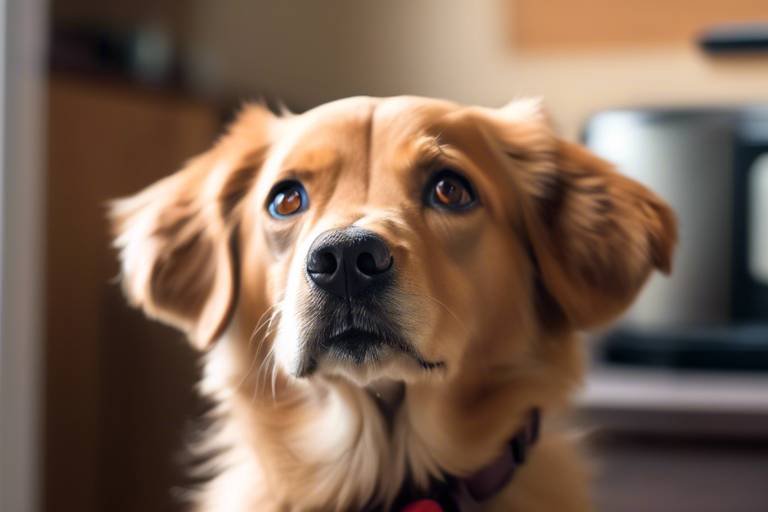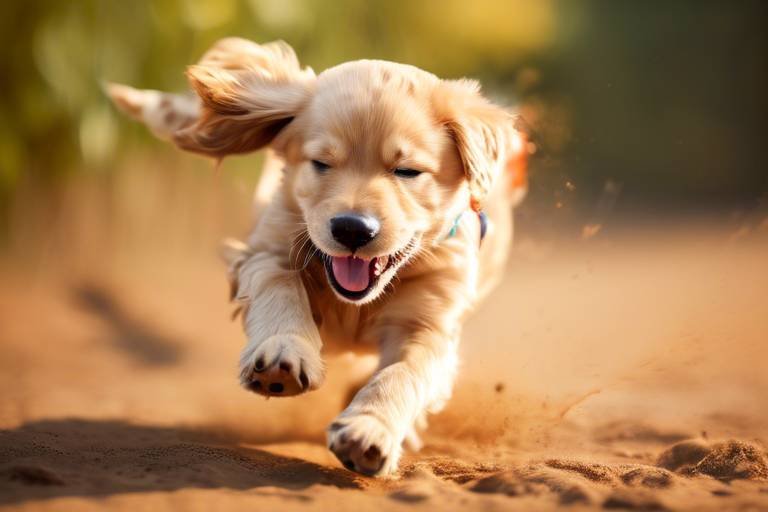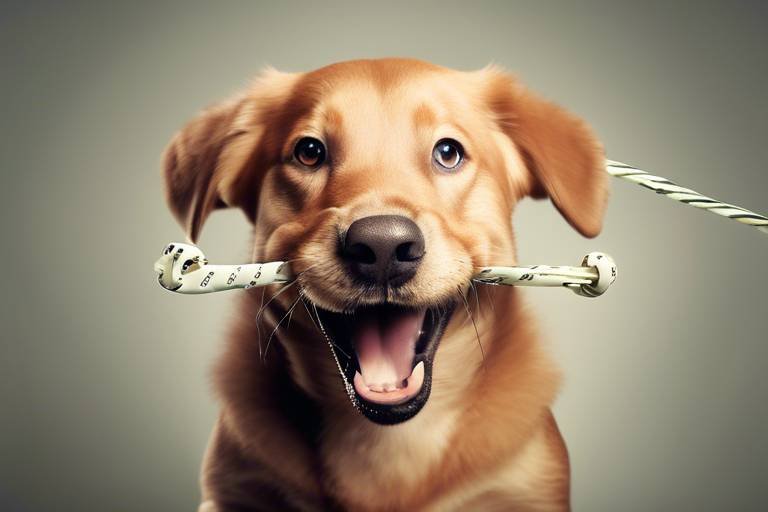The Benefits of Early Socialization for Puppies
Have you ever watched a puppy play with other dogs or interact with people? It's a delightful sight, isn't it? Early socialization is like giving your furry friend a passport to the world, allowing them to explore and experience life in a safe and enriching way. From the moment a puppy is born, they are like little sponges, soaking up everything around them. This article explores the critical advantages of early socialization in puppies, outlining how it influences their behavior, emotional well-being, and adaptability to new environments and experiences.
Puppy socialization is the process of exposing young dogs to various people, environments, and experiences. Think of it as their first lesson in life outside the comfort of their home. This foundational stage is essential for developing well-adjusted and confident adult dogs. By introducing puppies to a variety of sights, sounds, and smells, we help them learn how to navigate the world around them. Without this exposure, puppies may grow up to be fearful or anxious, struggling to cope with new situations. So, why is this socialization so crucial? It's all about setting the stage for a happy, balanced life.
Early socialization helps prevent behavioral problems, enhances temperament, and fosters positive interactions with other animals and humans. Imagine a puppy that has been well-socialized; they are more likely to be friendly, confident, and adaptable. This section discusses the various benefits associated with timely social exposure, and let’s dive into some of the most significant advantages:
Just like humans, dogs can experience fear and anxiety. Proper socialization reduces these feelings in dogs by familiarizing them with different stimuli. The more experiences a puppy has, the less likely they are to react negatively to new situations. This exposure helps create a more confident and less reactive adult dog. Think about it: a puppy that has met a variety of people, seen bustling streets, and heard loud noises is far less likely to become frightened when faced with similar scenarios as an adult.
Introducing puppies to diverse settings helps them develop comfort and adaptability. Picture your puppy exploring a park filled with children playing, other dogs barking, and the smell of fresh grass. Positive early experiences can lead to a well-rounded adult dog that enjoys new situations rather than shying away from them. By ensuring these experiences are pleasant, we help our puppies associate new environments with fun and excitement, rather than fear and uncertainty.
Socialization encourages puppies to engage positively with other dogs and people. Imagine a puppy that has learned to greet other dogs with a wagging tail and a playful bark; this interaction fosters good manners and reduces the likelihood of aggression or fear-based behaviors. It’s essential for puppies to learn how to communicate effectively with their canine and human companions, setting the groundwork for a harmonious relationship throughout their lives.
Understanding the critical periods for puppy socialization is vital. Puppies are most receptive to new experiences between the ages of 3 and 14 weeks. During this time, their brains are developing rapidly, and they are eager to explore. Missing this window can lead to long-term behavioral issues. So, it’s essential to seize the moment and provide as many positive experiences as possible during this developmental stage.
Various techniques can be employed to ensure effective socialization. It’s not just about throwing your puppy into a dog park and hoping for the best! This section will cover practical methods for exposing puppies to new experiences safely and positively, ensuring they grow into well-adjusted adults.
Controlled exposure allows for gradual acclimatization to different stimuli. Instead of overwhelming your puppy with too much at once, think of it as taking baby steps. This method ensures that puppies build confidence without feeling stressed. For instance, if you’re introducing your puppy to a busy street, start with quieter areas and gradually increase the level of activity. This way, they can form positive associations with their surroundings.
Puppy classes provide structured environments for socialization. These classes offer valuable opportunities for interaction with other dogs and people, enhancing learning through guided play and training. Not only do they help with social skills, but they also teach basic obedience, making them an excellent investment in your puppy's future. Plus, it’s a fun way for you and your puppy to bond while meeting other dog lovers!
- When should I start socializing my puppy? It's best to start socialization between 3 to 14 weeks of age.
- What if my puppy is fearful of new experiences? Take it slow and ensure that their first experiences are positive and rewarding.
- Are puppy classes necessary? While not mandatory, they can greatly enhance your puppy's social skills and provide a safe learning environment.
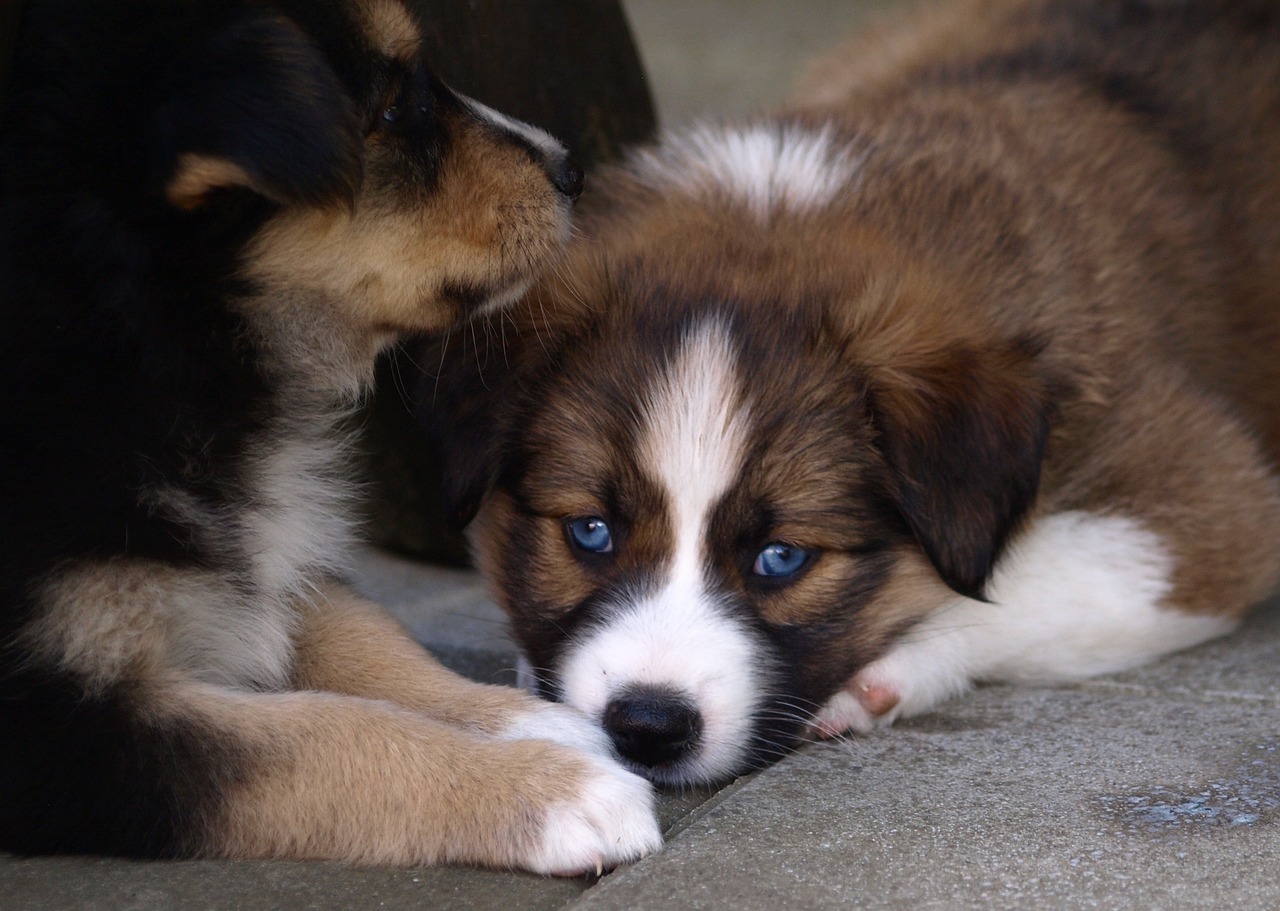
Understanding Puppy Socialization
Puppy socialization is a crucial aspect of raising a well-adjusted dog. It involves exposing young puppies to a variety of people, environments, and experiences in their formative weeks. Think of this period as a puppy's version of a "learning playground." Just like children, puppies are impressionable, and the experiences they have during their early months can shape their behavior for life. Socialization is not just about meeting other dogs; it’s about helping them navigate the world without fear or anxiety.
During the first few months of life, puppies are like sponges, soaking up information from their surroundings. This is the perfect time to introduce them to different sights, sounds, and smells. Imagine your puppy encountering everything from bustling city streets to quiet parks. Each experience contributes to their understanding of the world and builds their confidence. If done right, this early exposure can lead to a dog that is adaptable and comfortable in various situations, whether it’s a trip to the vet or a family gathering.
Socialization also plays a significant role in developing a puppy's temperament. A well-socialized puppy is more likely to grow into a friendly, confident adult dog. Conversely, a lack of socialization can lead to behavioral issues such as fearfulness, aggression, or anxiety. To illustrate, consider the following key areas where socialization impacts a puppy's development:
- Exposure to people: Meeting various individuals helps puppies learn to trust and feel comfortable around humans of all shapes and sizes.
- Interactions with other animals: Engaging with other dogs teaches them important social cues, such as body language and play behavior.
- Familiarity with different environments: Exploring various settings, from busy streets to quiet homes, helps puppies adapt to new situations.
In essence, puppy socialization is about creating a rich tapestry of experiences that will help shape your dog into a well-rounded companion. It’s important to remember that the goal isn’t just to expose them to new things, but to ensure these experiences are positive and rewarding. This way, when they encounter something unfamiliar in the future, they’ll approach it with curiosity rather than fear.
Ultimately, investing time and effort into your puppy's socialization can yield lifelong rewards. You’ll not only foster a bond of trust between you and your furry friend, but you’ll also set the stage for a happy, confident dog who can navigate the world with ease.
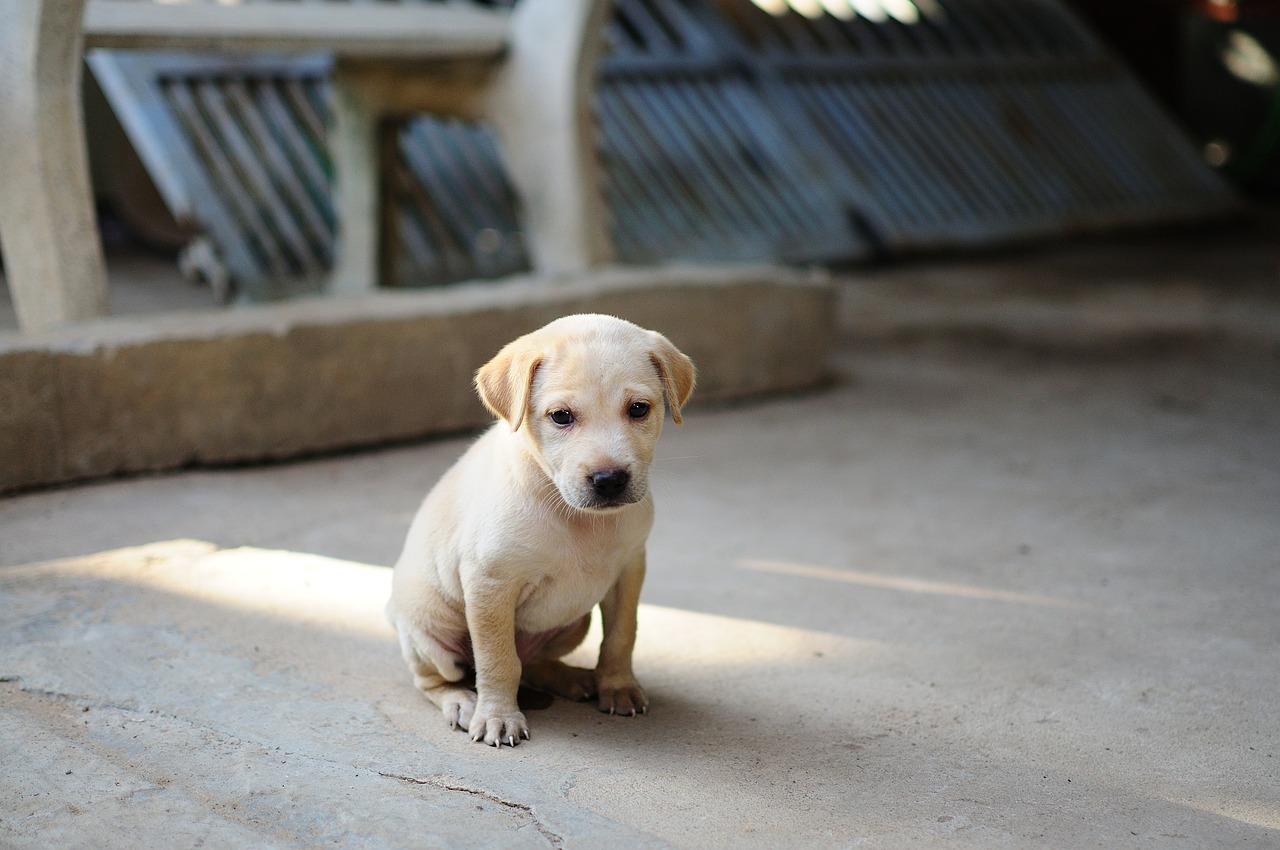
Key Benefits of Early Socialization
Early socialization is like giving your puppy a passport to the world! Imagine your furry friend stepping out into the big, bustling universe of sights, sounds, and smells. By exposing puppies to a variety of experiences during their formative months, we equip them with the tools they need to navigate life with confidence and joy. The key benefits of early socialization are not just about making your puppy friendly; they play a crucial role in shaping their overall behavior and temperament.
One of the most significant advantages of early socialization is its ability to prevent behavioral problems. Puppies that are socialized properly are less likely to develop issues such as aggression, fearfulness, or excessive barking as adults. Think of it as laying a strong foundation for a house; without that solid base, the structure is prone to collapse. By introducing your puppy to various people, environments, and other animals, you help them learn appropriate behaviors and responses, reducing the chances of future behavioral challenges.
Moreover, socialization enhances a puppy's temperament. A well-socialized dog tends to be more adaptable and resilient in new situations. For instance, a puppy that has met different types of people, from children to elderly folks, and encountered various settings, such as parks, busy streets, and even pet-friendly stores, is less likely to exhibit fear or anxiety in unfamiliar situations. This adaptability not only makes them more pleasant companions but also ensures that they can handle the ups and downs of life with ease.
Another critical benefit is the promotion of positive interactions with other animals and humans. When puppies are socialized early on, they learn how to communicate effectively with their peers. This learning process is crucial as it helps them develop good manners, reducing the likelihood of aggressive or fearful behaviors. For example, a puppy that has played with other dogs is more likely to understand canine body language, leading to healthier relationships with fellow canines. These early experiences create a ripple effect, fostering a well-adjusted adult dog that thrives in social situations.
In addition to these benefits, early socialization also contributes to the puppy's emotional well-being. Puppies that are exposed to various environments and experiences are generally happier and more confident. They learn to embrace new challenges rather than shy away from them. This emotional resilience is akin to building a mental toolkit that they can draw upon throughout their lives. By equipping your puppy with these essential skills, you pave the way for a fulfilling and enriched life together.
To sum up, the key benefits of early socialization for puppies include:
- Prevention of behavioral problems - Reduces the likelihood of aggression and fearfulness.
- Enhanced temperament - Fosters adaptability and resilience in new situations.
- Encouragement of positive interactions - Promotes good manners and healthy relationships with other animals and humans.
- Improved emotional well-being - Creates happier, more confident dogs ready to embrace life.
By investing time and effort into early socialization, you’re not just training your puppy; you’re giving them the gift of a well-rounded, fulfilling life. So, let your puppy explore the world, meet new friends, and experience the joy of socialization!
Reducing Fear and Anxiety
When it comes to our furry friends, one of the most significant benefits of early socialization is its power to reduce fear and anxiety. Imagine a puppy experiencing the world like a toddler; everything is new and can be quite overwhelming! By introducing them to various stimuli—sounds, sights, and smells—early on, we help them build a robust foundation for emotional stability.
Think about it: a puppy that has been exposed to different environments, people, and animals is less likely to react fearfully when they encounter something unfamiliar later in life. For instance, if a puppy has already met children, other dogs, and experienced bustling city noises, they will be more equipped to handle similar situations as they grow. This exposure creates a mental library of experiences that they can draw upon, making them less reactive and more adaptable.
Studies have shown that puppies who undergo proper socialization are significantly less likely to develop behavioral issues related to fear. Here are a few key points to consider:
- Familiarity breeds comfort: The more experiences a puppy has, the more comfortable they become in various situations.
- Confidence-building: Positive interactions during socialization can boost a puppy's self-esteem, allowing them to face new challenges with a wagging tail!
- Less reactivity: A well-socialized puppy is less likely to bark, growl, or show other signs of fear when faced with new experiences.
Moreover, the early socialization process should be approached with care. It’s vital to ensure that these experiences are positive and not overwhelming. Gradual exposure is key; think of it as introducing a child to a new playground—too much too soon can lead to tears instead of laughter! By creating a comfortable environment where puppies can explore at their own pace, we set them up for a lifetime of confident behavior.
In essence, reducing fear and anxiety through early socialization is about equipping our puppies with the tools they need to navigate the world confidently. With each positive interaction, we’re not just shaping their behavior; we’re nurturing their emotional well-being, paving the way for a happier, healthier adult dog.
- What is the best age to start socializing my puppy? It’s recommended to start socializing puppies between 3 to 14 weeks of age, as this is a critical period for their development.
- How can I tell if my puppy is anxious? Signs of anxiety in puppies can include excessive barking, hiding, trembling, or destructive behavior.
- Are there specific experiences I should focus on? Yes! Focus on exposing your puppy to various people, environments, sounds, and other animals to ensure well-rounded socialization.
- What if my puppy is fearful of certain situations? Take things slow! Gradual exposure and positive reinforcement can help your puppy learn to cope with their fears.
Positive Experiences with New Environments
When it comes to raising a puppy, one of the most crucial aspects is exposing them to a variety of new environments. Think of it as an adventure for your furry friend! Just like how we, as humans, feel more at ease in different places when we've had a chance to explore them, puppies benefit immensely from similar experiences. The more they encounter different settings, sounds, and smells, the more confident and adaptable they become.
Imagine taking a puppy to a bustling park filled with children playing, other dogs barking, and the smell of fresh grass. This vibrant atmosphere can seem overwhelming at first, but with proper socialization, it becomes a positive experience. By gradually introducing your puppy to such environments, you help them learn that the world is a friendly place, filled with exciting opportunities rather than threats.
Moreover, positive experiences in new environments can lead to a well-rounded adult dog. It's like giving your puppy a toolbox filled with essential skills! The more tools they have—like the ability to remain calm in busy places or to greet strangers without fear—the better equipped they'll be to handle life's surprises. For instance, a puppy that has been socialized in various environments is less likely to react negatively to unexpected situations, such as loud noises or sudden movements.
To ensure that these experiences remain positive, it’s important to monitor your puppy’s reactions. If they show signs of fear or anxiety, it’s best to take a step back and allow them to acclimate at their own pace. You can also reward them with treats and praise during these outings to create a strong association with the new environment. Positive reinforcement can work wonders in helping your puppy feel secure and happy in unfamiliar places.
In summary, the goal is to create a treasure trove of positive memories associated with new experiences. This not only enriches their early life but also lays the foundation for a well-adjusted adult dog. So, whether you’re visiting a friend’s house, exploring the local pet store, or taking a stroll through a vibrant neighborhood, remember that each new experience is an opportunity for your puppy to grow and thrive!
- What is the best age to start socializing my puppy? It's generally recommended to begin socialization between 3 to 14 weeks of age, as this is a critical period for development.
- How do I know if my puppy is ready for new experiences? Pay attention to their body language. Signs of curiosity and playfulness indicate readiness, while fear or avoidance suggests they may need more gradual exposure.
- Can I over-socialize my puppy? Yes, over-socialization can lead to stress. It's important to balance exposure with comfort, ensuring experiences are positive and not overwhelming.
- What types of environments should I expose my puppy to? Aim for a mix of environments, including parks, busy streets, pet stores, and homes with other pets or children.
Encouraging Healthy Interactions
When it comes to raising a puppy, one of the most rewarding experiences is watching them interact positively with other dogs and humans. is crucial for developing a well-mannered and socially adept adult dog. Think of it as teaching your puppy the art of conversation; just like humans, dogs need to learn how to communicate effectively with their peers. The earlier you start this process, the more adept your puppy will become at navigating social situations.
Socialization isn't just about letting your puppy play with other dogs; it's about creating meaningful experiences that foster good behavior. For instance, when your puppy meets another dog, it’s essential to monitor their body language. Are they relaxed, wagging their tail, and eager to engage? Or are they stiff, growling, or hiding behind you? Understanding these cues helps you guide their interactions and ensures they learn the right social skills. If a puppy feels overwhelmed, it’s your job as the owner to intervene and provide a safe space.
One effective way to encourage healthy interactions is through positive reinforcement. When your puppy interacts well with another dog or person, reward them with treats, praise, or playtime. This method not only reinforces good behavior but also establishes a positive association with social encounters. You might say, “Good boy!” or offer a tasty treat when they greet another dog politely. Over time, these positive experiences will help your puppy feel more comfortable and confident in social settings.
Additionally, consider enrolling your puppy in socialization classes or playgroups. These controlled environments allow puppies to interact with their peers under the supervision of trained professionals. In these settings, puppies can learn appropriate play styles, how to read canine body language, and even how to handle minor conflicts. The structure provided in these classes helps ensure that interactions remain safe and productive, ultimately leading to a more balanced adult dog.
Remember, the goal is to create a well-rounded dog who enjoys the company of others. To achieve this, expose your puppy to a variety of situations, such as:
- Meeting different breeds and sizes of dogs
- Engaging with people of all ages
- Exploring various environments, like parks, streets, and homes
By providing diverse experiences, you're setting the stage for your puppy to become a friendly, adaptable, and well-socialized adult. It’s all about building a solid foundation for their future interactions. With patience, consistency, and a bit of fun, you can ensure that your puppy grows into a sociable and confident dog.
Q: At what age should I start socializing my puppy?
A: Ideally, you should start socializing your puppy as early as 3 to 14 weeks of age. This is the critical window when they are most receptive to new experiences.
Q: How do I know if my puppy is having a positive experience?
A: Look for signs of relaxation, such as a wagging tail, playful behavior, and an eagerness to engage. If your puppy seems fearful or aggressive, it may be best to intervene.
Q: What if my puppy is scared of other dogs?
A: Take it slow! Gradually expose your puppy to other dogs in controlled environments, and use treats and praise to create positive associations.
Q: Can I socialize my puppy too much?
A: Yes, overexposure can lead to stress. It’s important to balance socialization with downtime and to pay attention to your puppy’s comfort level.
Critical Socialization Periods
The journey of a puppy's life is filled with various that play a pivotal role in shaping their behavior and temperament. During the first few months of life, puppies are like sponges, absorbing everything around them. This is the golden window of opportunity for socialization, typically occurring between 3 to 14 weeks of age. It's during this time that they are most receptive to new experiences, making it essential for owners to engage them in a variety of social settings.
Research indicates that the first 16 weeks are crucial for a puppy's social development. If they miss out on these experiences, it can lead to long-term behavioral issues. For instance, a puppy that hasn't been exposed to different people, sounds, and environments may grow into an adult dog that is fearful or aggressive in unfamiliar situations. This is why it’s important to introduce them to a wide array of stimuli during this formative time.
To illustrate the significance of these periods, consider the following table:
| Age (Weeks) | Socialization Focus |
|---|---|
| 3-5 | Introduction to humans and handling |
| 5-7 | Exposure to various sounds and environments |
| 7-12 | Interaction with other puppies and dogs |
| 12-16 | Exploration of new people, places, and experiences |
During these critical periods, it's essential to ensure that experiences are positive. Puppies learn best when they associate new experiences with joy and comfort. For example, encountering a busy street or a group of children can be daunting if not introduced correctly. Gradual exposure, paired with treats and praise, can help foster a sense of safety and curiosity.
Moreover, socialization isn't just about exposure; it's about creating meaningful interactions. Engaging with other well-mannered dogs can teach a puppy essential social cues and appropriate play behavior. This is where puppy classes can be incredibly beneficial, as they provide a controlled environment for these interactions, allowing puppies to learn from their peers under the guidance of a trained instructor.
In summary, understanding the critical socialization periods in a puppy's life is vital for developing a well-adjusted adult dog. By capitalizing on these windows of opportunity, owners can ensure their furry friends grow up to be confident, friendly, and adaptable companions.
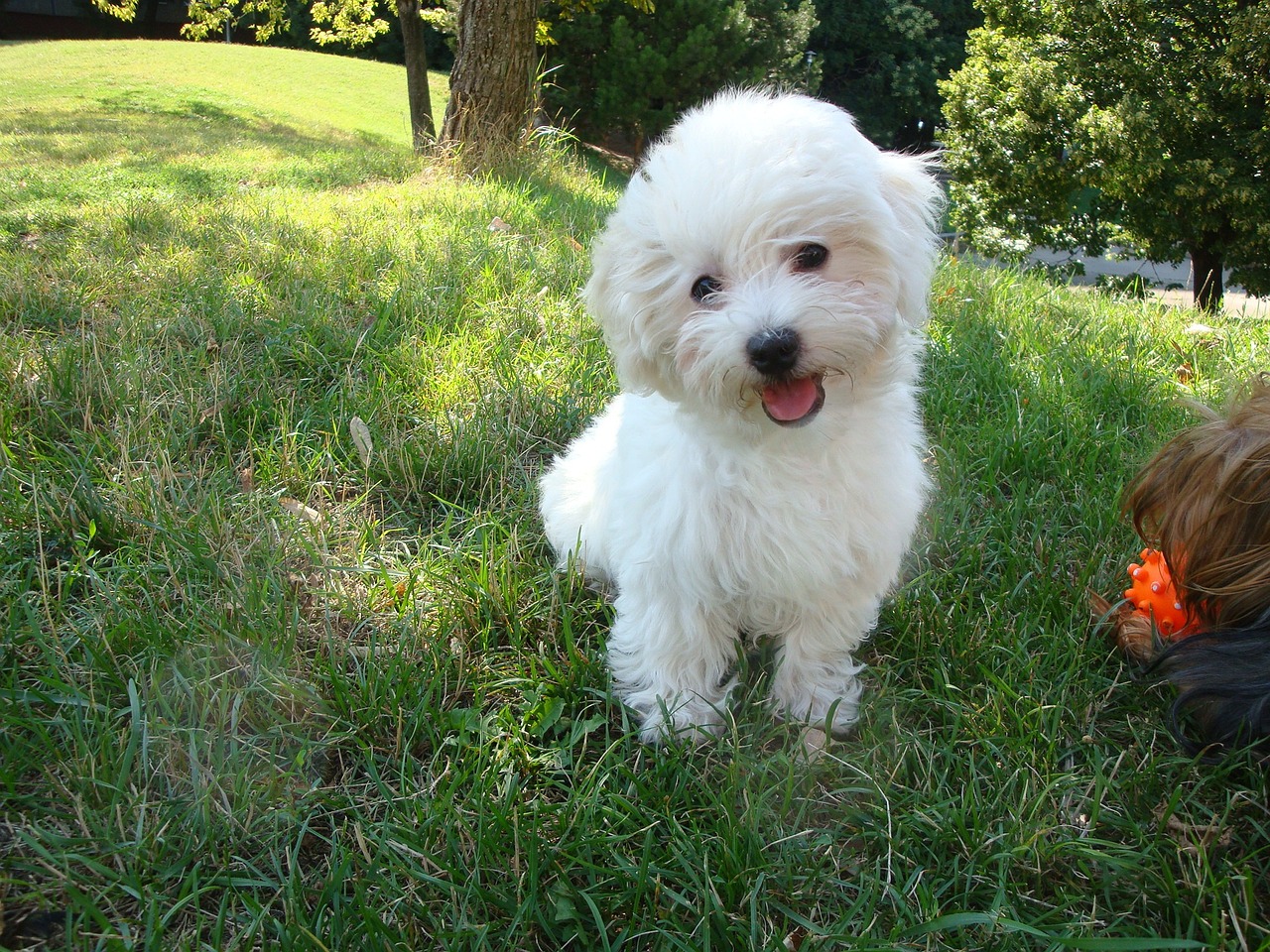
Techniques for Effective Socialization
When it comes to socializing your puppy, the approach you take can make all the difference. The goal is to create a well-adjusted dog that feels comfortable in various settings. One of the most effective techniques is controlled exposure to new experiences. This means gradually introducing your puppy to different environments, sounds, and people in a way that feels safe and non-threatening. Think of it like taking a toddler to a busy park for the first time; you wouldn't throw them into the middle of a crowd without preparation, right? Similarly, you want to ease your puppy into new situations, allowing them to explore at their own pace.
Utilizing puppy classes is another fantastic method for effective socialization. These classes provide a structured environment where puppies can interact with each other under the supervision of experienced trainers. It's like a playdate, but with a purpose! Not only do puppies learn how to behave around other dogs, but they also get accustomed to various human interactions. The guided playtime helps them understand boundaries and learn essential social skills that will benefit them throughout their lives.
In addition to classes, consider organizing playdates with other vaccinated dogs. This can be a more relaxed setting where your puppy can engage in free play, helping them develop their social skills naturally. Just remember, the key is to ensure that the other dogs are friendly and well-socialized themselves. You wouldn't want to introduce your pup to a dog that might overwhelm them or exhibit aggressive behavior.
Another effective technique is to expose your puppy to a variety of sounds and sights. This could include everything from traffic noise to household appliances. You can play recordings of different sounds at a low volume while your puppy is engaged in a positive activity, such as playing with their favorite toy or enjoying a treat. Gradually increase the volume as they become more comfortable, making sure to always associate these sounds with something positive. It’s like introducing a child to music; you want them to enjoy it, not be scared of it!
Finally, remember to always use positive reinforcement during socialization. Treats, praise, and affection can go a long way in helping your puppy associate new experiences with good feelings. Whenever your puppy encounters something new, whether it’s a person, a sound, or a different environment, reward them for their calm behavior. This builds a foundation of confidence and helps them feel secure in unfamiliar situations.
- What is the best age to start socializing my puppy? Ideally, you should begin socializing your puppy between 3 to 14 weeks of age, as this is the critical period for social development.
- How long should socialization sessions last? Keep sessions short and engaging, around 5 to 15 minutes, depending on your puppy's attention span.
- Can I over-socialize my puppy? Yes, it’s possible to overwhelm your puppy. Always monitor their reactions and take breaks if they seem stressed.
- What if my puppy is fearful of new experiences? Take it slow. Gradual exposure with positive reinforcement can help build their confidence.
Controlled Exposure to New Experiences
When it comes to socializing puppies, controlled exposure is a game-changer. Imagine you're a puppy, and the world around you is a big, exciting playground. But just like any playground, it can be overwhelming if you dive in headfirst without any guidance. Controlled exposure means introducing your furry friend to new experiences in a safe and manageable way. This approach allows puppies to explore their surroundings without feeling anxious or scared.
For instance, think about how you might introduce a child to a new environment. You wouldn't throw them into a crowded amusement park on their first outing, right? Instead, you’d start with a quiet park, gradually moving to busier places as they grow more comfortable. The same principle applies to our puppies. By starting small and gradually increasing the complexity of their experiences, we can help them build confidence.
One effective method of controlled exposure is through short outings. Take your puppy on brief trips to various locations, such as:
- Pet-friendly parks
- Quiet streets with minimal traffic
- Friends' houses with calm pets
- Veterinary clinics during off-peak hours
These outings should be kept short and sweet to avoid overwhelming your puppy. As they become more accustomed to each setting, you can gradually extend the duration and complexity of the experiences. This method not only helps your puppy acclimate but also allows you to monitor their reactions. If they seem anxious or scared, you can step back and try again later, reinforcing the idea that it's okay to take things at their own pace.
Another crucial aspect of controlled exposure is the importance of positive reinforcement. Every new experience should be paired with treats, praise, and affection. This creates a positive association with the new environment, making your puppy eager to explore further. For example, if your puppy encounters a new sound, like a car horn, reward them for staying calm. This reinforces the idea that the world is a safe place, filled with exciting adventures rather than threats.
In addition to outings, you can also introduce controlled exposure at home. Play sounds of different environments, such as bustling streets or nature sounds, at a low volume. Gradually increase the volume as your puppy becomes more comfortable. This method helps desensitize them to various noises they might encounter outside.
Remember, the key to successful controlled exposure is to keep it fun and engaging. Puppies are naturally curious, and by making new experiences enjoyable, you're setting them up for a lifetime of confidence and adaptability. So, gear up, grab some treats, and get ready to embark on this exciting journey of discovery with your puppy!
- What is the best age to start socializing my puppy? It's recommended to start socializing your puppy between 3 to 14 weeks of age when they are most receptive to new experiences.
- How often should I expose my puppy to new experiences? Aim for short, frequent outings several times a week to keep the experiences positive and engaging.
- What should I do if my puppy seems scared during exposure? If your puppy shows signs of fear, take a step back and give them time to adjust. Gradually reintroduce the experience at a slower pace.
- Are there specific environments I should avoid? Yes, avoid overly chaotic or aggressive environments until your puppy is more confident. Start with calm settings.
Utilizing Puppy Classes
Puppy classes are an invaluable resource for pet owners looking to provide their furry friends with the best start in life. These structured environments offer a safe and controlled setting where puppies can learn essential social skills while interacting with other dogs and people. Imagine a bustling classroom filled with wagging tails and joyful barks, where each puppy is encouraged to explore and engage. It's not just about obedience training; it's about building a foundation for a well-adjusted adult dog.
One of the most significant advantages of puppy classes is the opportunity for guided socialization. Under the watchful eye of experienced trainers, puppies can meet various breeds and temperaments, which helps them learn how to communicate effectively. This exposure is crucial for teaching them how to read body language and respond appropriately to different social cues. Think of it as a crash course in doggie etiquette!
Moreover, puppy classes often incorporate fun activities that keep the learning process engaging. From obstacle courses to interactive games, these classes are designed to stimulate a puppy's mind and body. This not only helps with physical development but also reinforces positive behaviors through play. When puppies associate training with fun, they are more likely to be enthusiastic participants in their own learning journey.
Additionally, puppy classes provide a platform for pet owners to learn alongside their dogs. As you observe your puppy interacting with others, you also gain insights into their behavior and needs. This dual learning experience fosters a stronger bond between you and your pet, as you both navigate the world together. Plus, it creates a community of like-minded individuals who can share tips, experiences, and support each other through the puppy-raising journey.
For those wondering about the structure of these classes, they typically cover a range of essential topics, including:
- Basic obedience commands
- Socialization with other dogs
- Exposure to different environments and stimuli
- Understanding canine body language
- Addressing common behavioral issues
In summary, utilizing puppy classes is a fantastic way to ensure your puppy is well-socialized, well-behaved, and ready to face the world with confidence. The combination of structured learning, social exposure, and community support makes these classes a must for any new puppy owner. So, why wait? Sign up for a puppy class today, and watch your little furball flourish!
Q: At what age should I start taking my puppy to classes?
A: It’s best to start puppy classes between 8 to 16 weeks of age, as this is a critical period for socialization.
Q: What should I bring to puppy class?
A: Bring your puppy's vaccination records, a leash, collar, treats, and a favorite toy to make them feel comfortable.
Q: How long do puppy classes typically last?
A: Most puppy classes run for about 6 to 8 weeks, with sessions lasting around an hour each.
Q: Will my puppy learn basic commands in class?
A: Yes, puppy classes usually include training for basic commands like sit, stay, and come, along with socialization exercises.
Q: Can older dogs benefit from puppy classes?
A: Absolutely! Older dogs can also benefit from socialization and training classes designed for their age group.
Frequently Asked Questions
- What is puppy socialization and why is it important?
Puppy socialization is the process of introducing young dogs to various people, environments, and experiences. It's crucial because it lays the foundation for developing a well-adjusted and confident adult dog. Proper socialization helps prevent behavioral issues and enhances a puppy's emotional well-being.
- When should I start socializing my puppy?
The best time to start socializing your puppy is between 3 to 14 weeks of age, known as the critical socialization period. During this time, puppies are more receptive to new experiences and learning positive interactions, which can significantly impact their behavior as adults.
- How can I safely socialize my puppy?
To safely socialize your puppy, begin with controlled exposure to new experiences. Gradually introduce them to different environments, people, and other animals. Puppy classes are also a great option, providing a structured setting for your puppy to learn and interact positively with others.
- What are some signs that my puppy is not well-socialized?
Signs of poor socialization in puppies can include excessive barking, fearfulness, aggression, or anxiety in new situations. If your puppy seems overly reactive or avoids contact with other dogs and people, it may indicate a need for more socialization.
- Can socialization help reduce my puppy's fear and anxiety?
Absolutely! Proper socialization helps reduce fear and anxiety by familiarizing puppies with various stimuli. This exposure encourages them to become more confident and less reactive, leading to a more relaxed adult dog.
- What activities can I do to socialize my puppy?
You can socialize your puppy through various activities, such as visiting parks, attending puppy classes, or inviting friends over. Playdates with other dogs, exposure to different sounds and environments, and positive experiences with new people are all excellent ways to enhance socialization.
- How long should socialization sessions last?
Socialization sessions should be short and positive, ideally lasting around 5 to 15 minutes. Keep sessions fun and engaging to prevent overwhelming your puppy. Gradually increase the duration as your puppy becomes more comfortable with new experiences.
- What if my puppy is already older than 14 weeks?
It's never too late to socialize your dog! While the critical period is ideal for early socialization, older puppies and adult dogs can still benefit from gradual exposure to new experiences. Be patient and use positive reinforcement to encourage good behavior.









